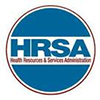 (May 1, 2024) - On April 22, the Health Resources and Service Administration finalized its 340B Administrative Dispute Resolution rule. The 340B ADR process is an administrative process designed to assist covered entities and manufacturers in resolving disputes regarding overcharging, duplicate discounts or diversion, as outlined in statute. The ADR process is also designed to provide stakeholders the opportunity to have disputes evaluated in a timely, consistent, fair and equitable manner. This final rule revises the process to meet the stated goals. Key provisions of the final rule include:
(May 1, 2024) - On April 22, the Health Resources and Service Administration finalized its 340B Administrative Dispute Resolution rule. The 340B ADR process is an administrative process designed to assist covered entities and manufacturers in resolving disputes regarding overcharging, duplicate discounts or diversion, as outlined in statute. The ADR process is also designed to provide stakeholders the opportunity to have disputes evaluated in a timely, consistent, fair and equitable manner. This final rule revises the process to meet the stated goals. Key provisions of the final rule include:
- ADR claims. HRSA finalized definitions outlining the claims parties are permitted to bring to the ADR process. ADR may be used for claims by covered entities that have been overcharged and claims by manufacturers CEs violated prohibitions against diversion or duplicate discounts. HRSA further clarified overcharging includes claims a manufacturer has limited a CE’s ability to purchase covered outpatient drugs at or below the 340B ceiling price. HRSA also finalized its proposals to require parties to file a claim within three years of the date of the alleged violation and parties must engage in and document a good faith effort to resolve the violation before using ADR.
- Process. Both the proposed and final rules reflect HRSA’s commitment to ensuring the ADR moves away from a trial-like process to an administrative process accessible to all parties. HRSA is finalizing provisions to remove the use of the Federal Rules of Civil Procedure and Federal Rules of Evidence so covered entities, particularly those that are small or rural, do not need to hire outside counsel to navigate ADR. Additionally, the ADR process will use a panel of 340B experts from HRSA’s Office of Pharmacy Affairs. Subject matter experts will have specific knowledge of the statute and operational processes of the program to successfully resolve disputes. When a claim is filed, the opposing party will have 30 days to submit a written response. HRSA noted in certain circumstances, such as missing key personnel, the ADR panel may exercise discretion in granting additional time.
- Minimum threshold for ADR claims. In response to National Rural Health Association’s comment, HRSA is not including a minimum claim amount for parties to seek relief through the ADR process. HRSA reasoned many covered entities are small or rural providers in underserved areas, and ADR should be accessible regardless of volume of purchases or sales.
- ADR decision process. HRSA did not finalize its proposal to suspend ADR claims if the same or similar issue is pending in federal court. In NRHA’s comment, we advocated for this change and are pleased with the final rule policy. Additionally, NRHA requested HRSA include a time frame for ADR panel decisions to provide certainty for covered entities, and HRSA finalized a provision requiring the panel to resolve disputes within one year.
- Reconsideration process. HRSA is largely finalizing the reconsideration process as proposed, with a modification suggested by NRHA to give parties up to 30 days, instead of the proposed 20, to file a request for reconsideration. Requests for reconsideration will be made to the HRSA Administrator and must include a copy of the ADR panel’s decision and documentation as to why reconsideration is warranted. New facts and information may not be submitted. The Administrator will either issue a new decision or decline to reconsider the claim.